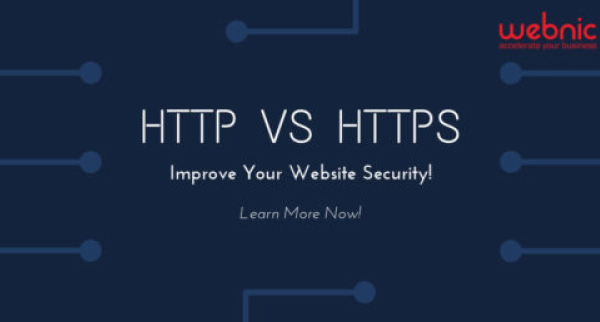We are visiting a bunch of websites every day, however, most of the people probably don’t pay much attention to the address bar and did not notice that there is two kind of starting of an URL, which is HTTP (http://) and HTTPS (https://). Even though you had noticed about it, but do you ever wonder what is the differences between them? Will it have any impacts to your internet security?

HTTP: No Data Encryption
HTTP refers to “hypertext transfer protocol”, it allows web browsers and servers to communicate through the exchange of data. As soon as a Web user opens their Web browser, the user is indirectly making use of HTTP. For example, when you enter a URL in your browser, this actually sends an HTTP command to the Web server directing it to fetch and transmit the requested Web page.
Unfortunately, HTTP are only focus in transmitting the data. Any data such as username/password and bank details that the users entered in the website will be sent plaintext to the server. During the transmission, the unencrypted data can be potentially intercepted by people with bad intention.
HTTPS: Data Encrypted
HTTPS and HTTP are essentially the same, both of them are referring to “hypertext transfer protocol”. What differences is, the data that the user entered in the website are encrypted, and hence it can prevent hackers’ interception.
The “S” from HTTPS is an abbreviation of the word “Secure”, it appears in the URL when a website is secured by a Secured Socket Layer (SSL) certificate. SSL is a standard security technology that encrypt the data transmitted between the server and your browser. In addition, it authenticates the identity of a website by validating the domain and company.
What are the advantages of having an SSL certificate / HTTPS to your website?
With the SSL certificate, the users:
1. Can know that their data is being transmitted securely.
2. Can validate that they are communicating with the exact company if the website obtained Organization Validated SSL Certificates.
3. Thus, users can have less worries and enhance their internet experience with the website.
The advantages gained by the owner includes:
1. Increased in the protection over their customer’s information.
2. Increased in user’s confidence, as customers are more likely to entered sensitive data or purchases from sites that is SSL certified.
3. Improved Google search ranking, as Google officially announced that HTTPS would become a ranking signal.
WebNIC provides comprehensive security features including SSL and antimalware software to ensure adequately safeguarding of sites. Visit here to view SSL brands that we carry.

